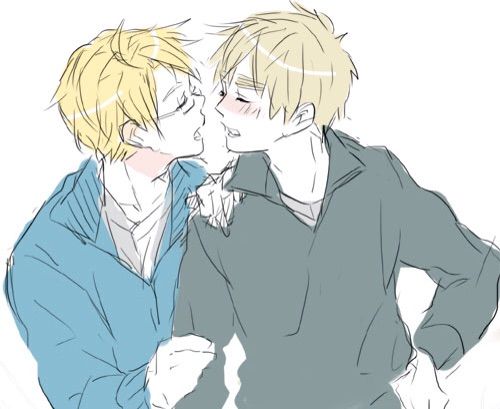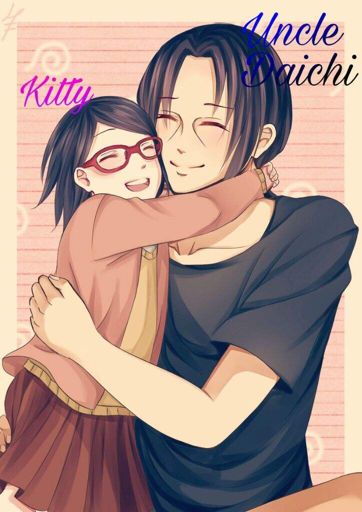
Good morning (formal) – Ohayō gozaimasu (おはよう ございます) Ohayō gozaimasu, which is pronounced o-high-oh go-za-ee-mos is the formal way to say “good morning.” Here the ‘u’ in ‘ Gozaimasu ‘ is silent.
How do you Say Good Morning in Japanese?
Perform a small head nod when saying “good morning” informally to friends and family members. This movement is considered the casual way to bow if you are from the United States or another country, and aren’t familiar with traditional Japanese bowing etiquette. Say “ohayo gozaimasu.”
What is the meaning of Good Morning Good Morning?
GOOD MORNING. A polite greeting and acknowledgment in the early hours of the day. Each new day provides the opportunity to make our world a happier and more genuine place. Used properly, this greeting can convey well wishes for the day ahead.
How many languages can you Say Good Morning in?
There are many kinds of phrases to say good morning in different languages. No matter where you go people greet each other with a good morning. Translation of word Good Morning in almost 100+ different languages of the world. Translation of word Good Morning in almost 42 European languages.
What are the benefits of speaking to others in the morning?
Speaking to others in the morning has many positive results. This brings us together with other people. This is important because we are social entities that thrive in positive relations with other human beings. It’s perfect for us.

What is good morning in anime?
1. Ohayō gozaimasu (おはようございます) This roughly translates to “good morning,” and is used typically in the morning hours before noon.
How do you say good morning in Weeb?
0:080:52How to Say "Good Morning" | Japanese Lessons - YouTubeYouTubeStart of suggested clipEnd of suggested clipOhayo-gozaimasu good morning ohayo gozaimasu let's try it ohayo gozaimasu again ohayo gozaimasuMoreOhayo-gozaimasu good morning ohayo gozaimasu let's try it ohayo gozaimasu again ohayo gozaimasu ohayo gozaimasu if you are saying good morning to your friends or family you.
How do you say hello in anime?
6:008:46[5 Best Words for Anime Lovers] How to Say Hello in Japanese! - YouTubeYouTubeStart of suggested clipEnd of suggested clipSo ohayo-gozaimasu it's good morning and cognate job means hello good day good afternoon and comboMoreSo ohayo-gozaimasu it's good morning and cognate job means hello good day good afternoon and combo means good evening and good night so these three or four say to your boss say to seniors.
What is the informal way to say good morning in Japanese?
ohayō gozaimasuThe first way to say good morning is ohayō おはよう (pronounced a lot like the state Ohio). This is the casual form, which you'd mainly use with close friends and family members. The second way to say good morning in Japanese is ohayō gozaimasu おはようございます. This is a more formal version.
How do you say good morning cutely?
30 Cute Ways to Say Good Morning30 cute ways to say "good morning"Rise n' shine! Famveldman, via Bigstock.Wakey, wakey, eggs and bakey!Mornin' mi amiga! ... Top o' the mornin' to ya!Seeing your beautiful face is the best part of waking up in the morning! ... I like you even before you've had your morning coffee.
What is ohayo?
Ohayo (おはよう, ohayō) is a colloquial term meaning good morning in Japanese. Ohayo may also refer to: Good Morning (1959 film), 1959 Japanese comedy film by director Yasujirō Ozu. Ohayo Mountain, Catskill Mountains, New York, US.
How do Japanese girls say hi?
やあ!“Hi” in Japanese – やあ! It's more of an exclamation to grab attention. In Japanese, it's common to greet your friends and coworkers with a やあ, or just あー (Aah-), followed by their name. Here's an example: やあ!
How can I talk like anime?
1:104:31How to Speak Like An Anime Character - YouTubeYouTubeStart of suggested clipEnd of suggested clipIt's not a hard anime character type to emulate you just have to either sound flustered whenMoreIt's not a hard anime character type to emulate you just have to either sound flustered when speaking about adding stutters or just straight up insult.
What does Oi mean in Japanese?
Oi – オイ – This is a highly informal way in the Japanese culture to get someone's attention. A lot like the English version of, “Hey!” – But even less polite. Osu – オス – This is an informal way of greeting someone in Japanese, normally used between good friends.
What Oyasumi means?
good nightgood night In a casual way, you can say OYASUMI.
How do Japanese greet?
In Japan, people greet each other by bowing. A bow can ranges from a small nod of the head to a deep bend at the waist. A deeper, longer bow indicates respect and conversely a small nod with the head is casual and informal. If the greeting takes place on tatami floor, people get on their knees to bow.
Is it rude to say Konichiwa?
In English, you might say “hi” to people anytime of the day; however, in Japanese, the above greeting is something useful to know as an etiquette. It is not appropriate to say, Konnichiwa (こんにちは) to someone 8 pm, past dinner time.
How to say "good morning" in Japanese?
The first way to say good morning is ohayō おはよう (pronounced a lot like the state Ohio). This is the casual form, which you'd mainly use with close friends and family members. The second way to say good morning in Japanese is ohayō gozaimasu おはようございます. This is a more formal version.
How to say Konnichiwa?
Unlike the difference between ohayō and ohayō gozaimasu, you may say konnichiwa with people you either know or don’t know equally. Like ohayō gozaimasu, it’s common to say konnichiwa while bowing (formal) or giving a head nod and a smile (less formal).
What does "long time no see" mean?
The greeting ohisashiburi desu お久しぶりです is best translated as "Long time, no see!" It can also be translated as "It’s been a while." This is the phrase you use when you haven’t seen somebody in a long time; you cannot use it when meeting someone for the first time.
How is Yoroshiku pronounced?
Yoroshiku is also pronounced pretty simply: yoh-roh-shee-koo. Note that the "r" sound in Japanese is very different from the English "r.". It’s a lot more like a mix between an "r," "l," and "d" (similar to how North Americans pronounce the "d" sound in "ladder" or the "t" sound in "better").
What does "nice to meet you" mean?
This phrase is generally the first thing you say to someone new, followed by your name and then another common phrase: dōzo yoroshiku or yoroshiku onegaishimasu (see below for more on this greeting), which is typically translated as "Nice to meet you."
What does the suffix "gozaimasu" mean?
This is a more formal version. Gozaimasu is a common suffix in Japanese used to indicate a high degree of politeness and respect. Since this form is more polite, you’ll often hear it in Japan in places such as schools, stores, workplaces, etc.
What does "konnichiwa" mean in Japanese?
Konnichiwa こんにちは means good afternoon in Japanese—or, more generally, hello—and is typically used from late morning to late afternoon.
How to say "good morning" in different languages?
Good Bye in Different Languages. The phrases may differ from place to place but still it is the most important one. The best way of saying “good morning” is through contact with the eyes and smiling. Smiles are contagious.
Why do we say "good morning"?
Connect with the eye, smile and say “good morning” cause us to concentrate on something else than what makes us sorrowful, angry or irritated. It is a relaxing, productive way to begin the day. Your simple Good morning leaves a good impression of you on others.
Why is greeting each other in the morning important?
This brings us together with other people. This is important because we are social entities that thrive in positive relations with other human beings. It’s perfect for us.
When you wish someone the best of the day, do you say "you think of them"?
Therefore, when you wish them all the best of the day you would often say that you think of them when you wake up in the morning.
How to say "good morning" in Hawaiian?
How to say good morning in Hawaiian: Aloha kakahiaka. — this Hawaiian word is used for both welcome and morning. Additionally, the word is also used as an expression of love and well wishes. In fact, the expression is used so often, which is why Hawaii also goes by the nickname Aloha State.
How to say "good morning" in Portuguese?
Learn of how to say good morning in Portuguese: Bom dia. Portuguese ( português) is a Romance language spoken as the official language of Portugal and Brazil. It is also the official language of Cape Verde, Guinea-Bissau, São Tomé e Principe, Angola, Mozambique, and the co-official language of East Timor, and Macau.
What is the most common way to say "good morning" in Corsica?
Bonghjornu. — the most commonly used way of saying good-morning in Corsican. Corsican is a Romance language from the Italo-Dalmatian family that is spoken predominantly on the Mediterranean island of Corsica. Corsican is closely related to Tuscan and to the Florentine-based Italian.
How to sign morning?
Morning can also be signed by tapping the shoulder that is opposite to your hand, followed by tapping the same shoulder as your hand. British Sign Language is a sign language used in the United Kingdom as the first or preferred language of some deaf people.
Where does the word "morning" come from?
The term is derived from Middle English gud mornynge (also as goode morne , gode morne ), from Old English *gōdne morgen (“good morning”), a conjugate for an expression such as “I wish you a good morning.”. The Modern English word “morning” began in Middle English as morwening.
What is Afrikaans language?
An informal, shortened version of the greeting above. Afrikaans is a West Germanic language of Southern Africa mostly derived from Dutch. It developed as Dutch settlers and indigenous African mixed languages beginning in the 17th century. Today, an estimated 15 to 23 million people call Afrikaans their mother tongue.

Popular Posts:
- 1. who is this anime character quiz
- 2. con nhà giàu tập 6 anime
- 3. what is a cool anime name
- 4. is one piece a good anime
- 5. don't watch an anime called boku video
- 6. what are some safe websites to watch anime
- 7. how to draw anime chin
- 8. where to watch belle anime movie
- 9. how to paint skin digitally anime
- 10. do re mi anime tomoko confronting reika